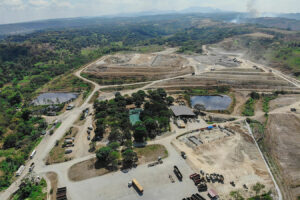
BCDA rejects talk of Central Luzon garbage crisis as landfill deal ends
THE Bases Conversion and Development Authority (BCDA) rejected speculation of a garbage crisis in Central Luzon with the imminent expiry of the contract to provide waste disposal services to local governments in the Clark area.
BCDA Chairman Delfin N. Lorenzana said three operational facilities can step in as alternatives to Capas, Tarlac’s Kalangitan sanitary landfill.
“To those local governments who use Kalangitan, please do not worry, as there are (three) facilities where you can dispose of your garbage,” Mr. Lorenzana said.
“We have three and a half months to arrange the transition from Kalangitan to these three facilities,” he added.
The BCDA said the three sites are run by Eco Protect Management Corp., whose landfill has a capacity of 2,500 metric tons (MT) per day; Florida Blanca Enviro Park Project Corp. with a 3,500 MT per day landfill; and Prime Integrated Waste Solutions, Inc., which operates a 5,000-MT materials recovery facility.
“In total, the capacity is at 11,000 MT for these three facilities in Central Luzon, which are mostly located in Pampanga. The current Metro Clark landfill has an average capacity of 2,500 MT. So these three facilities are enough to service the LGUs surrounding Clark,” Mr. Lorenzana said.
The 25-year contract between Metro Clark Waste Management Corp. (MCWMC), the current operator of Kalangitan, and BCDA’s subsidiary Clark Development Corp. (CDC), will end on Oct. 5.
According to Mr. Lorenzana, there is no provision in the contract between the MCWMC and CDC for a renewal or extension.
Citing a legal opinion rendered by the Office of the Government Corporate Counsel, the BCDA said that the contract cannot be extended even on an ad interim basis as it would violate the Build-Operate-Transfer (BOT) Law.
The BOT Law was the framework used in the bidding and awarding of the contract for the Kalangitan landfill.
“In the meantime, the BCDA will study and benchmark successful projects in other countries to learn how to rezone and rehabilitate landfill sites,” it said.
“The BCDA is also in talks with LGUs to assist them in exploring alternative solutions to avoid disruption of waste management services,” it added. — Justine Irish D. Tabile



